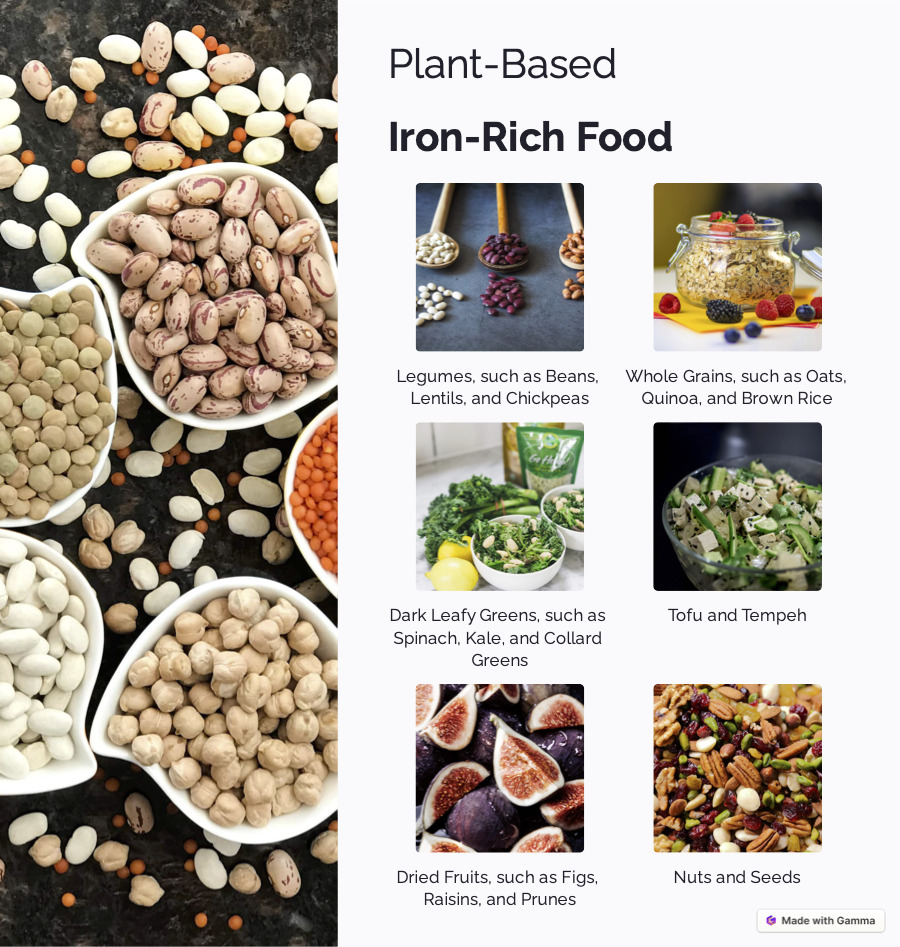The Daily Mail recently ran a headline that would have made any vegan wince: “Four in Ten Females Under 21 Are Deficient in THIS Nutrient – and Experts Blame the Rise of Vegan and Vegetarian Diets.“
The article goes on to claim that the rise in iron deficiency among young women is due to their increasing adoption of plant-based diets. But is this really the case?
As it turns out, the answer is a bit more complicated. While it’s true that vegans and vegetarians may be at a slightly higher risk of iron deficiency, the vast majority of young women who are iron-deficient are not following plant-based diets.
So what’s really going on?
Well, for one thing, iron deficiency is a pretty common problem, affecting people of all dietary habits. In fact, the World Health Organization estimates that about 2 billion people worldwide are iron-deficient.
There are a number of factors that can contribute to iron deficiency, including:
- The Role of Menstruation in Iron Deficiency
- Low body mass index (BMI)
- Food insecurity
- Poverty
- Ethnicity
- Inadequate screening for nutrient deficiencies
So, while it’s true that vegans and vegetarians may need to be a bit more mindful of their iron intake, it’s not fair to say that their diets are the sole cause of iron deficiency.
In fact, there are plenty of plant-based foods that are excellent sources of iron. Legumes, whole grains, tofu, dark leafy greens, and dried fruits are all good choices for vegans and vegetarians who are looking to boost their iron intake.
And if you’re still worried about getting enough iron, you can always talk to your doctor about taking a supplement.
So there you have it. The truth about iron deficiency is a bit more complex than the Daily Mail would have you believe. But with a little planning and education, it’s perfectly possible to follow a plant-based diet and still get all the iron you need.

Disclaimer: This information is not intended to be a substitute for professional medical advice. Always consult with your healthcare professional before making any changes to your diet or taking any supplements.
Find out more
Dietary Sources of Iron
- Everyday Health states that iron is present in a wide array of plant-based foods, including legumes, whole grains, tofu, dark leafy greens, and dried fruits.
- FoodUnfolded agrees, stating that plant-based foods are an excellent source of iron, and that vegans and vegetarians can easily meet their iron needs by eating a variety of these foods.
- Plant-Based.org also highlights the importance of eating a variety of plant-based foods to ensure adequate iron intake.
- ScienceDirect published a study that found that plant-based diets can provide adequate iron intake, even for people with high iron needs.
The Role of Menstruation in Iron Deficiency
- The Lancet states that menstruation is a major risk factor for iron deficiency, especially when heavy.
- The World Health Organization (WHO) agrees, stating that iron deficiency is a common problem among women of reproductive age, especially those who have heavy menstrual bleeding.
The Relationship Between Vegan, Vegetarian, and Plant-Based Diets and Iron Intake
- The Stanford Report emphasizes the importance of proper meal planning and balanced nutrition in vegan, vegetarian, and plant-based diets.
- The World Economic Forum also highlights the importance of a well-structured diet in ensuring adequate iron intake on a plant-based diet.
- World Health Organisation (WHO) states that a well-planned plant-based diet can provide all the nutrients that people need, including iron.
Importance of Regular Screening for Iron Deficiency
- The American Academy of Family Physicians recommends that all adults be screened for iron deficiency at least once.
- PubMed published a study that found that regular screening for iron deficiency can help to identify and treat the condition early, which can prevent complications.
- World Health Organization (WHO) also recommends that people at risk for iron deficiency be screened regularly.
- Craig, W. J., Mangels, A. R., & Institute of Medicine (US) Standing Committee on the Scientific Evaluation of Dietary Reference Intakes. (2009). Position of the American Dietetic Association: Vegetarian diets. Journal of the American Dietetic Association, 109(7), 1266-1282.
- Craig, W. J., & Mangels, A. R. (2009). Benefits of vegan diets for humans. American Journal of Clinical Nutrition, 89(5), 1627S-1633S.
- Barnard, N. D., Scialli, A. R., & Hurlock, D. (2016). Plant-based diets and nutritional adequacy. Nutrition Today, 51(3), 116-123.